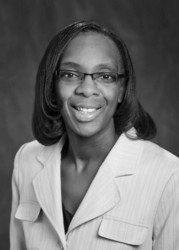Lori Martin, Louisiana State University – Alton Sterling and Black Lives Matter
 Social justice concerns have been ever present in the news.
Social justice concerns have been ever present in the news.
Lori Martin, associate professor in the department of sociology and African American studies at Louisiana State University, discusses the issues that continue to divide the country.
I am a native New Yorker. I was born and raised in Nyack, New York, a small town about 30 miles North of New York City. I completed my undergraduate work at Fordham University in Bronx. I earned a Master’s Degree from the University at Buffalo, and I completed my Ph.D. at the University at Albany, State University of New York. My first full-time teaching position was in small city in upstate New York. In 2006, I joined the faculty at John Jay College of Criminal Justice. I never thought I would leave New York, but I could not pass up the opportunity to join a world-class institution like LSU. The caliber and the commitment of the faculty; the ambition of the students; and the support of the community for the university; made the decision to make Baton Rouge home, an easy one. I am looking forward to the opportunity to collaborate with my distinguished colleagues. I am also looking forward to the opportunity to capture the sociological imaginations of my students. I am deeply committed to research, teaching, and learning. Service-learning is one of the ways that I connect my research and the classroom to the community. I am excited about the prospect of addressing community-identified needs in my new role. LSU is the ideal place for me to pursue my research interests, especially my research on race and ethnicity, racial wealth inequality, black asset poverty, and the sociology of sports.
Alton Sterling and Black Lives Matter
Proclaiming “Black Lives Matter” as people have done for hundreds of years does not make one anti-police or anti-white, rather, it places people in the company of champions of social justice.
Baton Rouge was a divided city long before this summer when the world watched as Alton Sterling took his last breath on the concrete outside a local business.
It came as no surprise to people with a firm grasp of local and national history that the epidemic of assaults on black and brown bodies made its way to Louisiana’s capitol.
As the daughter, sister, wife, mother, and colleague of some of the most wonderful black males on the planet, and as a race scholar, I am troubled but not surprised by the senseless loss of life and continued denial of the magnitude of the challenges facing Baton Rouge and the nation. At the same time, I am inspired by the bravery of people willing to speak truth to power often at great risk.
Patriotic protests allow one to simultaneously denounce the unjust killings of human beings by those charged with the enormous responsibility of protecting and serving everyone and mourn the fallen.
The 1,000-year flood, which occurred shortly after the killing of Sterling did not wash away issues that continue to divide the city. The acts of kindness we all witnessed were right and reasonable. However, we must not mistake charity for equity and justice.
Rebuilding and recovering must be goals related not only to the damage caused by the flood but also to the ongoing racial storms.
We must understand this summer’s events as points on a continuum of an age-old movement. Holding institutions accountable is our reasonable service. Anything short of that means we are part of the problem and not the solution.


